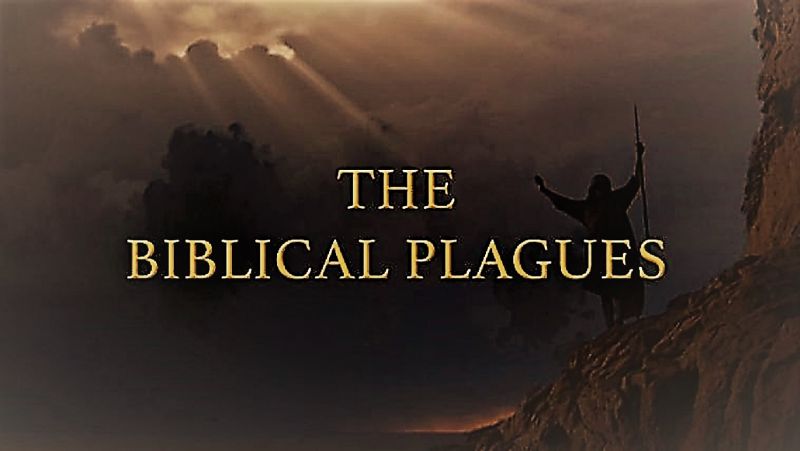The Biblical Plagues episode 3 – Flight from Egypt: With a graphic account of the tenth and worst punishment, the chain of Plagues in the Book of Exodus comes to an end. Scientists, archeologists and historians look at contemporary evidence to find some explanations for the final plague and any record of the subsequent migration of the freed people.
The three-part documentary brings to life a Biblical story that has always struck fear into the hearts of mankind: the story of the Ten Plagues, a catastrophic series of natural and environmental disasters. Using the Scriptures as a historical source, scientists, historians and theologians can now prove that the account of the Plagues was based on actual events. Their trailblazing scientific research yields startling new theories and sheds new light on the Bible.
The Biblical Plagues episode 3 – Flight from Egypt
The Plagues of Egypt, in the story of the book of Exodus, are ten disasters inflicted on Biblical Egypt by the God of Israel in order to convince the Pharaoh to allow the Israelites to depart from slavery, each of them confronting Pharaoh and one of his Egyptian gods; they serve as “signs and marvels” given by God to answer Pharaoh’s taunt that he does not know Yahweh: “The Egyptians shall know that I am the LORD”.
Scholars broadly agree that the Exodus is not a historical account, that the Israelites originated in Canaan and from the Canaanites and that, while a small group of proto-Israelites probably did originate from Egypt, it did not happen in the massive way the Bible describes. The Ipuwer Papyrus, written probably in the late Twelfth Dynasty of Egypt (c. 1991–1803 BCE), has been put forward in popular literature as confirmation of the biblical account, most notably because of its statement that “the river is blood” and its frequent references to servants running away.
However, these arguments ignore the many points on which Ipuwer contradicts Exodus, such as Asiatics arriving in Egypt rather than leaving and the fact that the “river is blood” phrase probably refers to the red sediment colouring the Nile during disastrous floods, or is simply a poetic image of turmoil. Attempts to find natural explanations for the plagues (e.g., a volcanic eruption to explain the “darkness” plague) have been dismissed by biblical scholars on the grounds that their pattern, timing, rapid succession, and above all, control by Moses mark them as supernatural.




